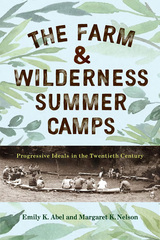
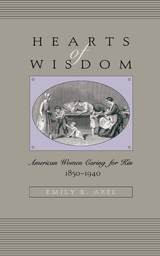
The image of the female caregiver holding a midnight vigil at the bedside of a sick relative is so firmly rooted in our collective imagination we might assume that such caregiving would have attracted the scrutiny of numerous historians. As Emily Abel demonstrates in this groundbreaking study of caregiving in America across class and ethnic divides and over the course of ninety years, this has hardly been the case.
While caring for sick and disabled family members was commonplace for women in nineteenth- and early-twentieth-century America, that caregiving, the caregivers' experience of it, and the medical profession's reaction to it took diverse and sometimes unexpected forms. A complex series of historical changes, Abel shows, has profoundly altered the content and cultural meaning of care. Hearts of Wisdom is an immersion into that "world of care." Drawing on antebellum slave narratives, white farm women's diaries, and public health records, Abel puts together a multifaceted picture of what caregiving meant to American women--and what it cost them--from the pre-Civil War years to the brink of America's entry into the Second World War. She shows that caregiving offered women an arena in which experience could be parlayed into expertise, while at the same time the revolution in bacteriology and the transformation of the formal health care system were weakening women's claim to that expertise.
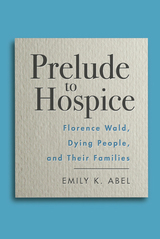
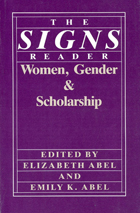
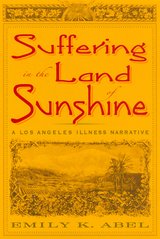
The history of medicine is much more than the story of doctors, nurses, and hospitals. Seeking to understand the patient’s perspective, historians scour the archives, searching for rare personal accounts. Bringing together a trove of more than 400 family letters by Charles Dwight Willard, Suffering in the Land of Sunshine provides a unique window into the experience of sickness.
A Los Angeles civic leader at the turn of the twentieth century, Willard is well known to historians of the West, but exclusively for his public life as a booster and reformer. Willard’s evocative story offers fresh insights into several critical issues, including how concepts of gender, class, and race shape patients’ representations of their illness, how expectations of cure affect the illness experience, how different cultures constrain the coping strategies of the sick, and why robust health is such an exalted value in certain societies.
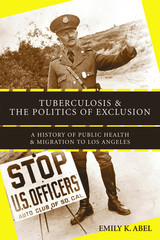
Winner of the 2008 Arthur J. Viseltear Prize from the American Public Health Association and Nominated for the 2008 William H. Welch Medal, AAHM
Though notorious for its polluted air today, the city of Los Angeles once touted itself as a health resort. After the arrival of the transcontinental railroad in 1876, publicists launched a campaign to portray the city as the promised land, circulating countless stories of miraculous cures for the sick and debilitated. As more and more migrants poured in, however, a gap emerged between the city’s glittering image and its dark reality.
Emily K. Abel shows how the association of the disease with “tramps” during the 1880s and 1890s and Dust Bowl refugees during the 1930s provoked exclusionary measures against both groups. In addition, public health officials sought not only to restrict the entry of Mexicans (the majority of immigrants) during the 1920s but also to expel them during the 1930s.
Abel’s revealing account provides a critical lens through which to view both the contemporary debate about immigration and the U.S. response to the emergent global tuberculosis epidemic.
READERS
Browse our collection.
PUBLISHERS
See BiblioVault's publisher services.
STUDENT SERVICES
Files for college accessibility offices.
UChicago Accessibility Resources
home | accessibility | search | about | contact us
BiblioVault ® 2001 - 2024
The University of Chicago Press









